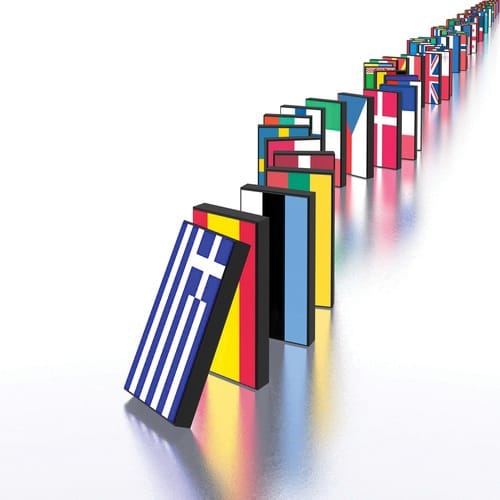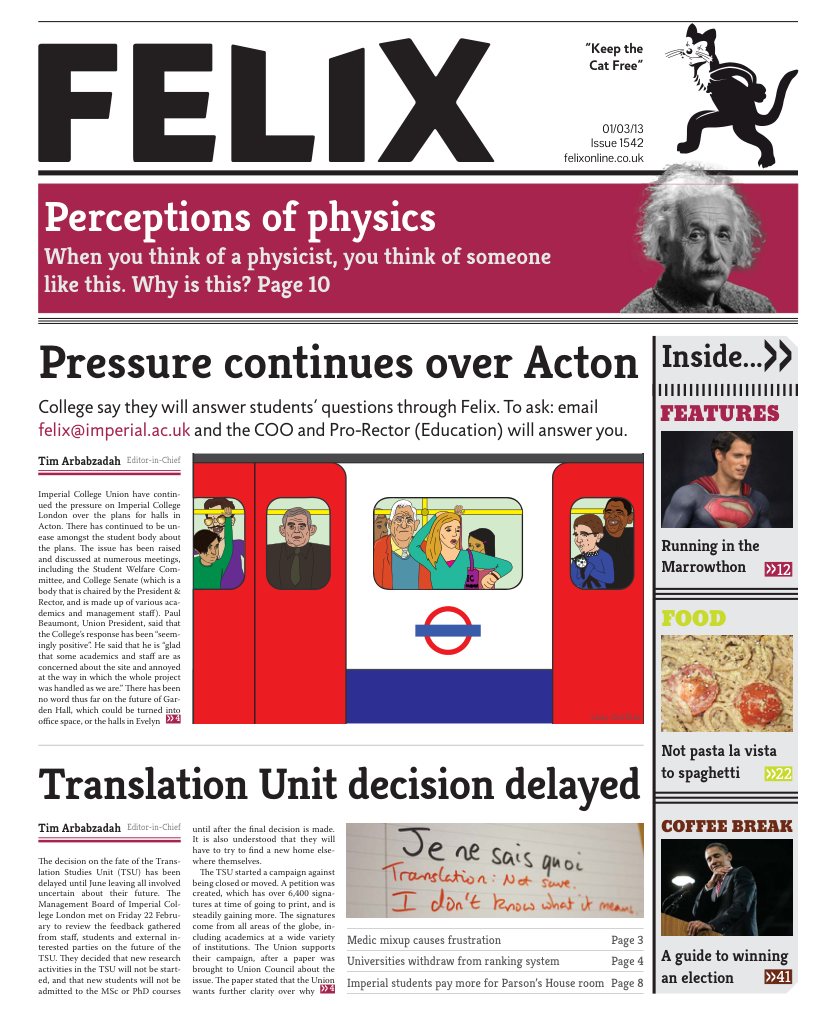Love Europe, Hate the EU
An anonymous response to the recent comment articles on the virtues of the EU

f you really love Europe then you ought to be a Eurosceptic by now.
It’s been striking to see the amount of pro-EU articles in these pages over recent weeks. First Pietro Aronica wrote about the need for a ‘United States of Europe’, and now Leonardo Ialongo has written two pieces on ‘A European Citizenship’ to celebrate the launch of a European Society on campus. Following David Cameron’s speech in mid-January promising a referendum on the UK’s membership of the EU, this sudden appearance of propaganda should be of no surprise.
What has surprised me, however, is the level of delusional thinking that these writers and other staunch supporters of the EU have shown.
Leonardo’s first article discussed the numerous benefits that the UK enjoys as part of the EU, such as consumer protection, increased mobility across the continent, and greater power as a bloc to influence global political issues. These are of course desirable. The problem is that UK citizens feel that these perks do not justify much higher tax rates – in 2008, total cost to the UK of EU membership was estimated at £65 billion. That’s the equivalent of £1,000 per year for every single person in the country. Given that the UK economy is a complete mess, its aging infrastructure is in decline and its people are becoming relatively poorer, perhaps they might have a point that the money would be better spent at home? If Europhiles were to chat with the average British person, they would find that the old clichés about how where our scepticism comes from simply aren’t true – most people couldn’t care less about the lost empire, they just want value for their money, and the EU doesn’t give it.
Leonardo tells us that this concern is misguided as this money is in the form of a loan, and ‘should therefore be paid back’. The key word here is ‘should’. He overlooks the inconvenient fact that many, nay, most, states cannot pay back their debts, and we are now witnessing the consequences of this across the world. It won’t change any time soon.
His second article supports the introduction of Eurobonds as part of a fiscal union, since ‘more central European oversight on national debt is necessary’. This is a euphemism for the transferral of the power to tax and spend from national governmentsto Brussels. It is also remarkably simplistic thinking. In such a scenario, it is clear that this would essentially result in Germany, the continent’s economic powerhouse, deciding how money should be allocated across local economies. It is hard to see this going down well anywhere in Europe, least of all in Greece, where Germany has imposed austerity as a condition for receiving bailouts, and newspaper depictions of Angela Merkel in Nazi uniform are now common. But it won’t happen anyway, because no national government would ever permanently hand over their centuries-old power to tax and spend to Brussels. This is because in doing so they would themselves become obsolete.
... you can still be a fan of our continent and its peoples without supporting the EU
This brings us on to the next point, which is that in fact the Eurozone’s main problem is not economic in nature, but one of political legitimacy. Leandro correctly notes that the project has been driven by the European elite, and has alienated the European population. He thinks this can be solved by a ‘process of democratisation of its institutions’. Again, this strikes me as just wishful thinking, because the whole ethos of the EU is anti-democratic. The clearest example of this was the forcing-through in 2008 of the Lisbon Treaty, a resurrection of the deeply unpopular EU Constitution which was rejected by the electorate in 2005. Aside from the usual cuts in national sovereignty, the most egregious aspect of this move was that since the people clearly didn’t want it, the politicians decided that they knew better, and quietly changed the terms of the treaty so that it could be passed in parliaments, rather than having to go through irksome referenda. Who in their right mind would think that this cynical attitude could be reversed?
It’s clear that what the Eurocrats want is a kind of superstate similar to the USA, as Pietro outlined in his article. But this idea is nothing more than a fantasy. Its proponents ignore the fact that the USA has a completely different set of circumstances to our continent: they are a single nation-state, which only came into being as a political entity after a devastating civil war. By contrast, Europe is a disparate region of many nations, each with their own cultures, languages, histories and levels of economic development. In the utopian world of the Eurocrat, Europe’s peoples would forget these differences, and embrace a common identity as, in Leonardo’s words, a ‘European people’.
The problem with this is that no such people exists – only millions of humans from different nations who happen to live in a continent called Europe. Although multi-lingual, mobile types like him and I might be able to get along well in the cosmopolitan world of Imperial College, that doesn’t mean that everybody else in a United States of Europe would. He correctly notes that the EU has played an important role in suppressing the latent xenophobic and racist attitudes that many people feel following World War Two. But it is precisely because those evils are never far below the surface that we ought to be extremely wary of those who want to forge grand political projects while assuming that peoples from vastly different backgrounds will get along nicely for the sake of its continuity. As history has shown, this is particularly the case when inequality is rising and living conditions begin to decline, as they are across Europe with the gradual movement of wealth away from the West towards the developing markets. It is ironic that the recent rise of far right parties across Europe, notably in France, Hungary and Greece, is in part a reaction to the existence of the EU, rather than in spite of it.
It is well known that European Societies tend to consist of ex-pupils of European Schools, and what interests me is the extent to which these schools appear to indoctrinate their pupils with pro-EU propaganda. The USSR was a very different institution to the EU, but one can’t help being reminded of the way that Soviet schoolchildren were indoctrinated with the enlightened principles of Marxism-Leninism, even when its disastrous results were clear for all to see outside the classroom. The analogy goes further when you remember that just as Eurocrats want to create a new ‘European People’, the Soviets were convinced that they could create a ‘New Soviet Man’ – a selfless, healthy and educated enthusiast for spreading the socialist Revolution. Unlike the USSR, the EU will not slaughter millions in the name of this ideal, but the similarities are certainly instructive. Perhaps it’s just a coincidence that many of the EU’s leaders, most notably the President of the European Commission Jose Manuel Barroso, are former Maoists. Or perhaps not.
Why do these people so despise the nation-state? I’d like tosuggest that graduates of European Schools who become proto-spokesmen for the EU simply lack a part of their own identity – that same part that Italian people get from going to Italian schools, or Finnish people get by going to Finnish schools. In absence of a school-time affiliation with any particular nation, these people find solace in the prospect of a new, European identity, and now want to impose this on the rest of us, most of whom are quite happy remaining Italian or Finnish first rather then European.
Being a Eurosceptic doesn’t make you xenophobic, and you can still be a fan of our continent and its peoples without supporting the EU, as I am. In fact, the consequences of greater integration could be far more disastrous than the alternative. Perhaps if you really love Europe then you ought to be a Eurosceptic by now.







